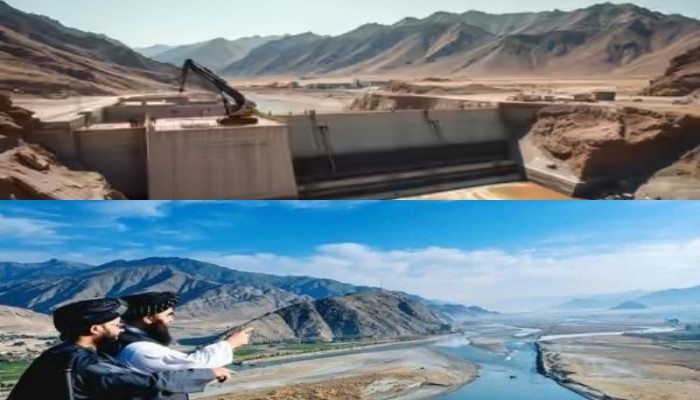The Taliban government in Afghanistan has announced plans to build dams and limit the flow of water to Pakistan, according to the Afghan Information Ministry. The order to build a dam on the River Kunar “as fast as possible” was issued by Taliban Supreme Leader Mawlawi Hibatullah Akhundzada. This public statement about Afghanistan’s “right to water” came only weeks after deadly clashes between Afghanistan and Pakistan that left hundreds of people dead.
Afghanistan’s move comes soon after India’s decision on its water-sharing agreement with Pakistan. India suspended the Indus Waters Treaty, under which it shared water from three western rivers, after Pakistani and Pakistan-backed terrorists killed 26 civilians in Pahalgam on April 22.
The Afghan Ministry of Water and Energy said that Supreme Leader Akhundzada had directed the ministry to begin work on dams along the Kunar River without delay and to sign contracts with Afghan companies. Muhajer Farahi, the Deputy Minister of Information, shared the announcement on X on Thursday.
London-based Afghan journalist Sami Yousafzai said, “After India, it may now be Afghanistan’s turn to restrict Pakistan’s water supply…”. According to him, the Supreme Leader “ordered the [water and energy] ministry to sign contracts with domestic Afghan companies rather than wait for foreign firms”.
The Kunar River stretches for about 480 kilometres and begins in the Hindu Kush mountains of northeastern Afghanistan near the Broghil Pass close to the Pakistan border. It flows through Kunar and Nangarhar provinces before crossing into Pakistan’s Khyber Pakhtunkhwa, where it meets the Kabul River near Jalalabad. In Pakistan, the same river is known as the Chitral River.
The Kabul River, which the Kunar feeds into, is the largest shared river between Afghanistan and Pakistan. It joins the Indus near Attock and is vital for Pakistan’s irrigation and other water needs, especially in Khyber Pakhtunkhwa province. Any reduction in the Kunar’s water flow could weaken the Kabul and Indus rivers and affect the water supply in Punjab as well.
“The Kabul and Kunar rivers, which flow into Pakistan, have long been a source of water in Pakistan,” London-based Afghan journalist Sami Yousafzai posted on X.
This move by Afghanistan follows weeks of violent fighting along the Durand Line, the de facto border with Pakistan, which Kabul does not recognise. The Durand Line, drawn by the British during the colonial era, had divided the Pashtun homeland into two parts.
Since taking power in 2021, the Taliban has focused strongly on asserting Afghanistan’s control over its water resources. The regime has pushed for faster construction of dams and hydropower projects to use its rivers for energy generation, irrigation, and to reduce dependence on neighbouring countries.
Pakistan and Afghanistan have never signed a formal agreement on sharing river waters. Islamabad has already raised concerns over the Taliban’s plans to assert control over Afghanistan’s water. Pakistani officials have warned that such unilateral actions could lead to a major regional water crisis at a time when Pakistan is already struggling with energy shortages and food insecurity.
The Taliban’s latest decision came a week after Afghan Foreign Minister Mawlawi Amir Khan Muttaqi visited India and met with External Affairs Minister S Jaishankar.
“Appreciating India’s assistance in the construction and maintenance of the India-Afghanistan Friendship Dam (Salma Dam) in Herat, both sides also underscored the importance of sustainable water management and agreed to cooperate on hydroelectric projects with a view to addressing Afghanistan’s energy needs and supporting its agricultural development,” said a joint statement by both governments.
Over the years, India and Afghanistan have worked closely on hydropower and energy projects designed to improve water security, irrigation, and electricity generation across the country.
The centrepiece of this partnership is the Salma Dam, also called the Afghan-India Friendship Dam, completed in 2016 with nearly $ 300 million in Indian funding. Located in Herat province, it produces 42 megawatts of power and irrigates about 75,000 hectares of land, helping Afghanistan reduce its dependence on imported electricity.
Building on this partnership, the Shahtoot Dam on the Maidan River, a tributary of the Kabul River, was formalised under a 2021 agreement backed by India’s $ 250 million investment. The project will store 147 million cubic meters of water, provide clean drinking water to over two million people in Kabul, and irrigate around 4,000 hectares of farmland in nearby areas.
